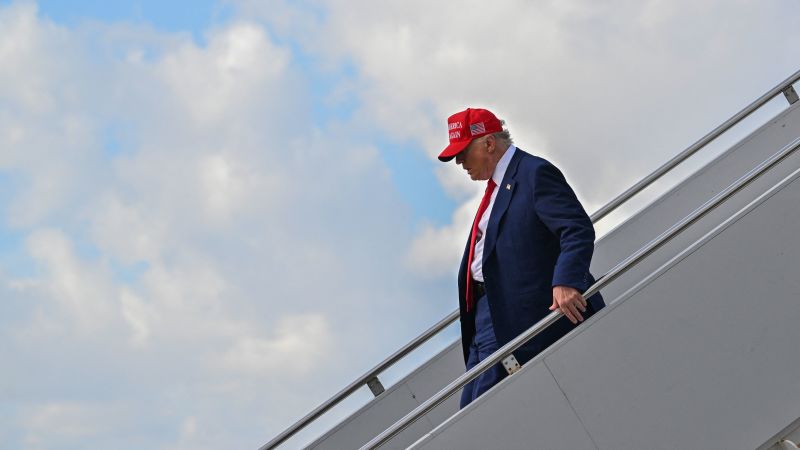
Trump appears to channel Napoleon in vision for executive authority: ‘He who saves his Country does not violate any Law’
CNN
President Donald Trump on Saturday offered a cryptic, one-sentence insight into what appears to be the guiding philosophy behind the first weeks of his presidency — and his expansive and unprecedented efforts to reshape the use of executive authority.
President Donald Trump on Saturday offered a cryptic, one-sentence insight into what appears to be the guiding philosophy behind the first weeks of his presidency — and his expansive and unprecedented efforts to reshape the use of executive authority. “He who saves his Country does not violate any Law,” Trump claimed in a social media post, now pinned atop his profile. Trump has dramatically reimagined the scope of his executive power at the start of his second term, issuing scores of executive actions. The efforts have been bolstered by the administration’s implicit confidence in its capacity to defend itself from legal challenges as Trump, in part, sought to remake the judiciary during his first term. Still, Trump’s extraordinary attempts to expand the power of the executive branch have hit legal roadblocks in recent days. Dozens of court cases have swiftly challenged Trump’s policies and prompted judges to put on hold some of the implementation to determine whether the moves are legal. The lawsuits include challenges to stopping federal foreign aid, firing federal workers, ending government programs and even closing agencies altogether. Trump’s Saturday social media post is likely to have echoes in court — and government attorneys defending his policy decisions against more than 60 lawsuits are arguing to protect and expand executive power. The court cases so far have prompted lawyers from the Justice Department to argue that Trump’s power as president shouldn’t be limited within the executive branch and shouldn’t be tied up in the federal judiciary, especially as he makes decisions around the federal workforce and spending. Several of the cases have set up the Trump administration to attempt to strike down congressional authority, especially over spending and mechanisms that Congress put in place in the past to check the executive’s authority.













